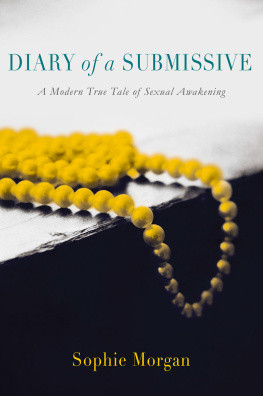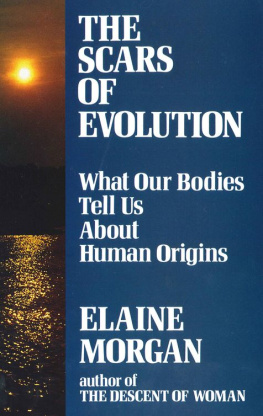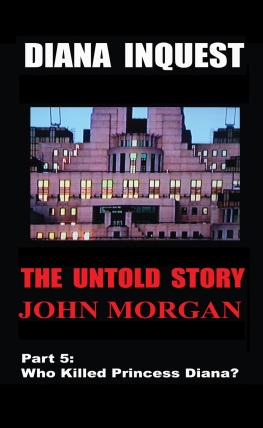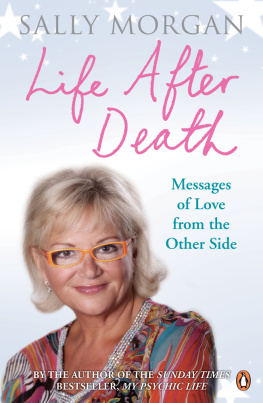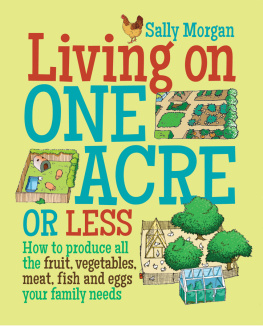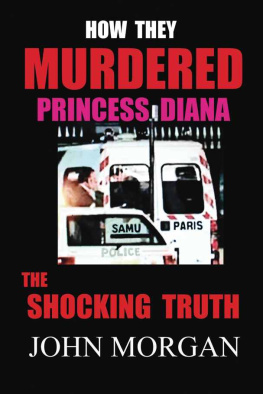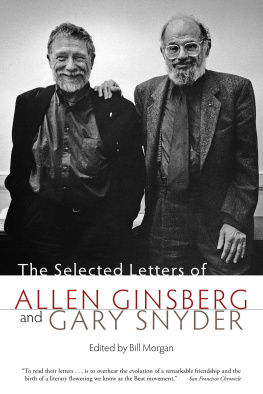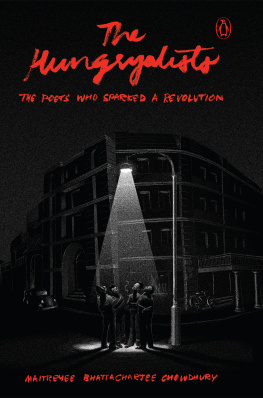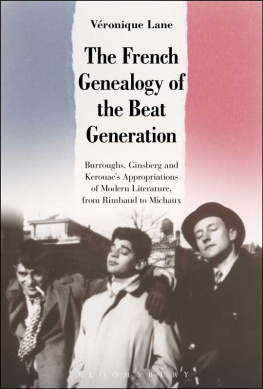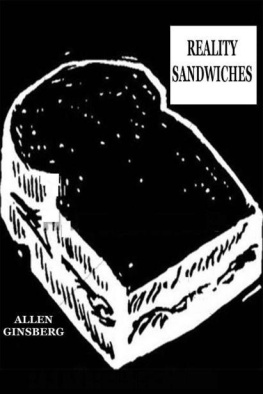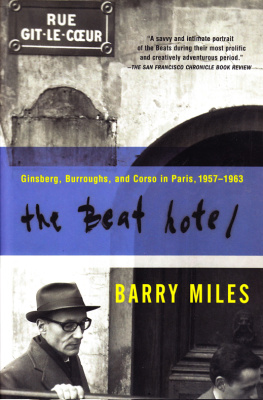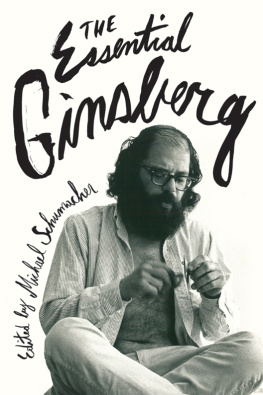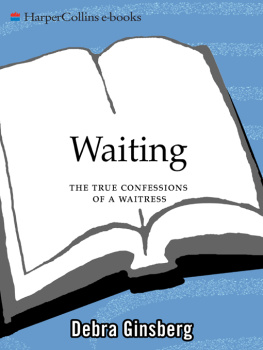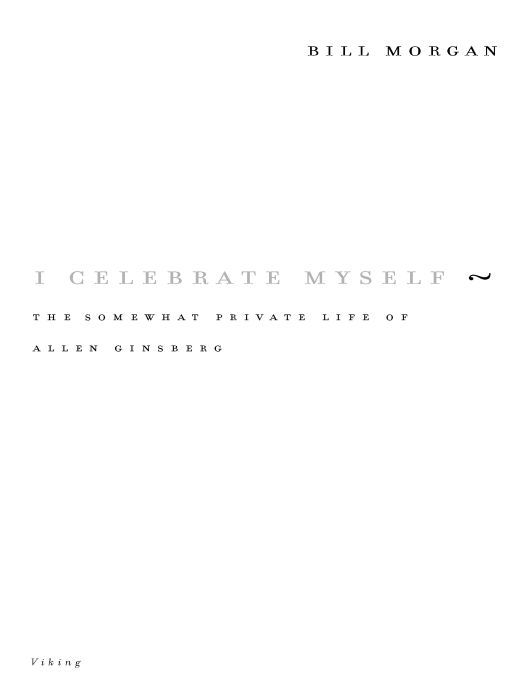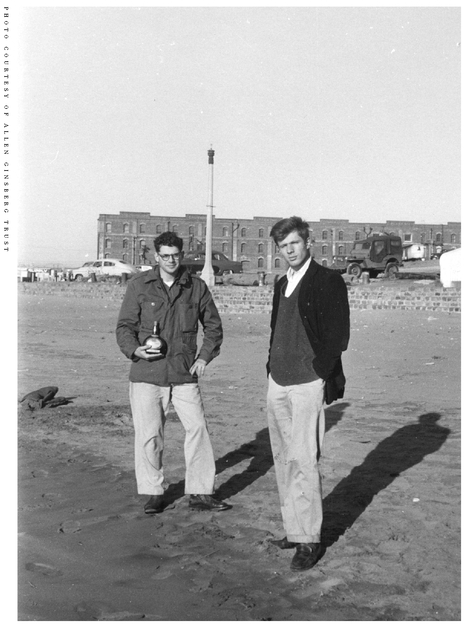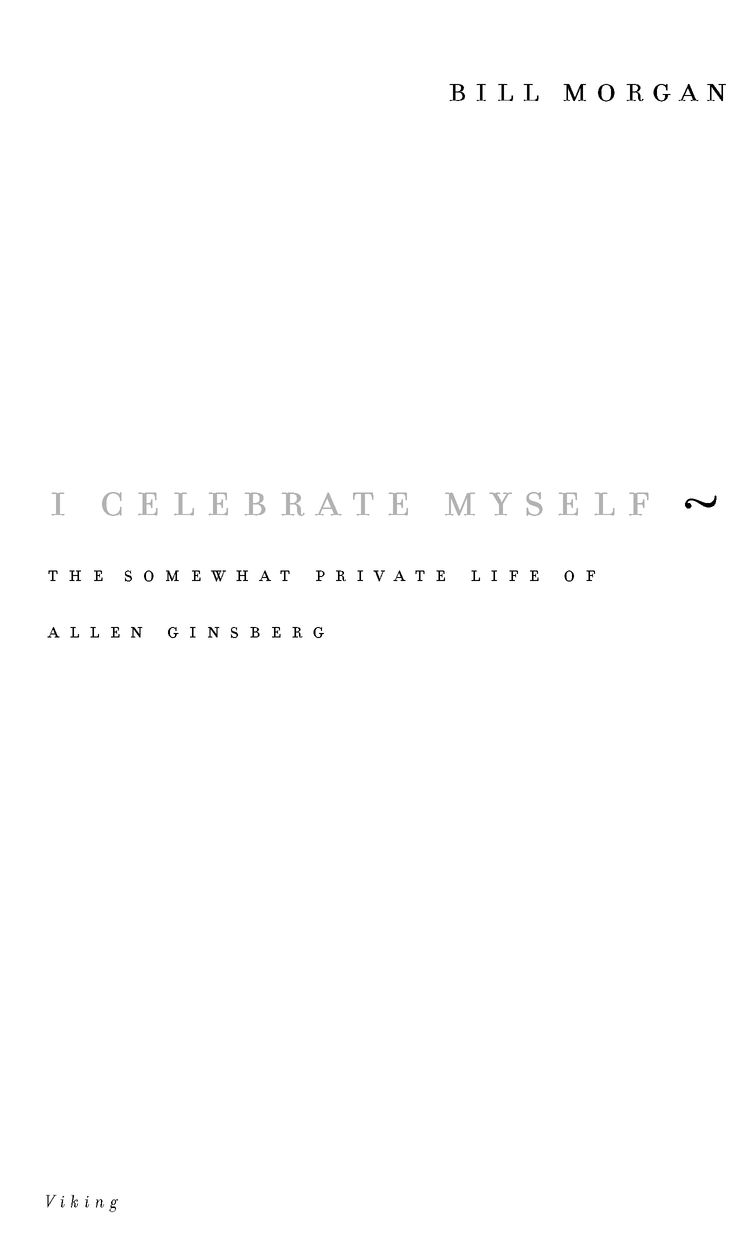Table of Contents
Allen Ginsberg and Peter Orlovsky at Aquatic Park, San Francisco, 1955 ~
I CELEBRATE myself,
And what I assume you shall assume,
For every atom belonging to me, as good belongs to you.
WALT WHITMAN
from
Leaves of Grass
TO LAWRENCE FERLINGHETTI
for greeting Allen at the beginning of a great career
FOREWORD
IN NEW YORK CITY, the first spring trees that blossom on the streets are the callery pears. To most people their fragrant petals herald the arrival of warmer days and signal the end of winter, but for the past nine springs their sweet bouquet has reminded three friends, Bob Rosenthal, Peter Hale, and myself, of the sudden death of the man we worked with, Allen Ginsberg. We havent failed to remark on it once in those nine years. We note the early or late blooming of the flowers in comparison to the day in April 1997 when Allen died and left his world of triumph and suffering behind. It coincided with the moment the pear blossoms reached their peak. As we walked out onto the street after the deathbed vigil, their pleasant aroma was so invigorating and their ivory radiance so cheerful that it made a sharp contrast to our sadness. Our grief was shared by thousands of friends and fans in the days and months that followed, but each April fifth weve said to one another, Well, the pear trees are late this year, remembering the day and date so vividly.
When Allen Ginsberg died, the country lost not only one of her most renowned poets, but also one of her greatest citizens, so great, in fact, that he could easily be called a citizen of the world. Political borders meant little to him and did not limit his influence. People constantly complain that we have no heroes anymore, at least no heroes in the traditional sense. We have, for instance, plenty of politicians pretending to be heroes. Some dress as combat pilots to strike a heros pose, but everyone knows theyre not. The news media identify the victims of great tragedies and illnesses as heroes, good people in the wrong place at the wrong time. Multimillionaire athletes are called heroes by their admirers, but what heroic virtues do they exemplify? At the same time, traditional heroes are only of interest if they can be toppled from their pedestals and exposed as hypocrites. It is said that Thomas Jefferson fathered children by his slaves, Martin Luther King was unfaithful to his wife, and Abraham Lincoln was gay. Have we missed the point that Jefferson wrote the words that all men are created equal, which led to the end of slavery in America, or that Kings appeals to nonviolently resist segregation led to an Equal Rights Amendment? The true liberties that we enjoy today were not easily won by these heroes, but were the results of lifelong struggles.
Upon closer examination, the unlikely character of Allen Ginsberg deserves to be considered one of the best examples of the true American hero, a sentence that might upset Ginsbergs admirers and detractors alike. Perhaps it would have upset Allen himself, although his beliefs and ideals exemplify all of the qualities that are outlined in the Declaration of Independence and the Bill of Rights. His patriotism was not blind obedience to the institution of the United States governmentin fact a predominant theme in his poetry was a desire for liberty from all state controlyet his love for freedom and equality was unparalleled and uncompromising. Most politicians give lip service to the countrys founding principles, but Ginsberg put himself on the line time after time to fight for those freedoms and was called un-American and subversive for doing so. People have been quick to forget that dissent is not un-American, but the very cornerstone upon which the country was founded. As a result Allen became a spokesman for a generation that was beginning to question the my country right or wrong attitude of the military-industrial complex at midcentury. More than effecting a political change, however, his work as a champion of free speech led to a cultural change that swept the entire world and continues to this day. All the equal rights movements of the fifties and sixties, from civil rights to gay rights to womens rights to sexual liberation, can be traced to earlier free speech movements.
Ginsbergs greatness as displayed through his poetry lay most of all in his manner of confronting life. He had a genius for living, a genius for examining himself wholly and expressing himself candidly. He loved life, even though he was fascinated and at times nearly obsessed with death, and he encouraged individuals to follow their own paths wherever they led. Allen influenced and changed the lives of countless people through his writing. He turned people on to poetry, he introduced them to spirituality, he showed them that activism could achieve results on both grass roots and global levels. His words are a unique part of our heritage as Americans and so is the story of the man who spoke them.
In the late seventies after finishing a comprehensive bibliography on the work of the San Francisco poet Lawrence Ferlinghetti, I moved to New York and started to compile a similar one on Allen Ginsbergs work. I was looking forward to working on a Ginsberg bibliography, even though it would take nearly fifteen years to complete. I considered it a bibliographic challenge since no other living poet seemed to be as prolific as he was. Geography was a happy coincidence in my choice of subjects as well, for Ginsberg lived just around the corner, in fact our kitchen windows overlooked each other. It would be convenient to comb through his archive for elusive publications, or so I thought. The initial problem was that his archive was not only enormous, it was also far from organized. His apartment was crammed with documents and the mountain of paper spilled over into hundreds of boxes stored in the vault at Columbia Universitys Butler Library. I suggested, and Allen readily agreed, that while I was examining his files, I would organize them so that he and researchers could find things when they needed them.
As I worked on the bibliography I began making notes for a biography. My role as archivist was never important enough to be anything more than a footnote so theres no reason to pretend that this is my life with Ginsberg, but in addition to putting his papers in order, two things I did had major effects on him. It was through my efforts that Allens archive was sold to Stanford, which gave him enough money to buy an apartment when he became sick. I was also the person who nagged him repeatedly during the early 1980s to sit down and re-examine his early photographs I had found scattered among his papers at Columbia. As a result he renewed his interest in picture taking for the rest of his life. Over the years one thing or another always kept me from sitting down to write the biography, even though I continued to keep notes and read all I could find about the poet and his life. With his death came the realization that the time had come to put it all together at last.
As I wrote, I was surprised to discover that Ginsbergs story turned out to be a love story, or at least a search for love. Recurrent themes are his unfulfilled desire to be loved by others and his search for a love of self, which I think he did come close to achieving in the end. His self-love was not wholly narcissistic. Theoretically Allen was able to trace his ability to love directly back to Walt Whitman, hence I chose the title and epigram for this book from Whitmans great autobiographical poem. Whitmans lesson to Allen was that it is possible to forgive another and love another only after you forgive and love yourself. That was the underlying reason why he felt that Whitman was so important to the American psyche. Whitman had accepted himself and from that flowed an acceptance of all things. Allen believed that Walt Whitman was the first American poet to take action in recognizing his individuality, forgiving and accepting


